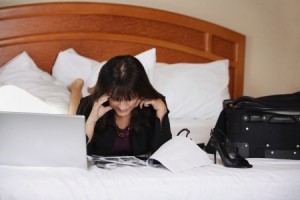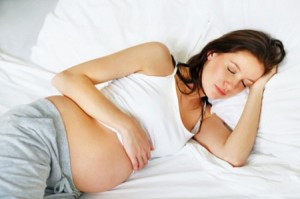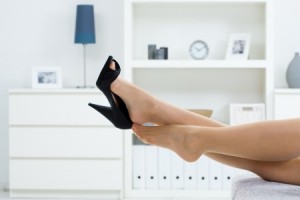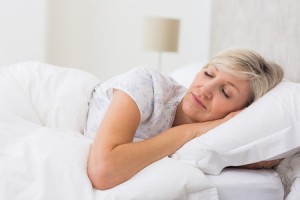Tips for Your 20’s, 30’s, 40’s & 50’s on Getting Better Sleep & Increasing Your Productivity
Sleep deprivation takes a toll on work performance, causing forgetfulness, impeding concentration, reducing focus and impairing judgment. What if, despite your best efforts, you wake up feeling tired and cranky? Are you the best employee, entrepreneur or leader if you are sleep deprived?
Even women who have not had trouble sleeping in the past will occasionally go through stages of disrupted sleep. Sometimes, the sleep issue is a phase induced by temporary conditions such as a house guest or work troubles. More often, however, sleep issues have a more complex and harder to diagnose origins and solutions.
Perhaps not surprisingly, more women than men report having sleep challenges with falling asleep or staying asleep. Too many sleepless nights in a row can contribute to brain fog that negatively affects work performance.
If sleep disturbances negatively affect your daytime performance, it might be time to look beyond the ideal room temperature at some of the common causes of sleep issues by age.
Your 20’s
Adults in their twenties have the fewest sleep issues of any age group. They have outgrown the bad dreams of adolescence, “Goodbye, nightmares about missing your final exam!” Most twenty-somethings will need an average of 7 hours sleep per night. When they do not get enough sleep, they are often more able to make up for it some on the weekends by sleeping in. What could possibly keep them from adequate sleep?
Problem: Over-Scheduling
Some young adults try to cram too much into the day. They work 8-12 hours, run to the gym either before or after work, and then try hang out with their friends in-between.
Solution: Schedule Sleep
Choose at least one evening per week to relax and head to bed early. If you have meetings every Thursday morning, it makes sense to get your best rest on Wednesday night so you can rise and shine.
Problem: Menstrual Cycle
You cannot blame everything on your cycle, but you actually can contribute some sleep issues to it. Cramps, food cravings, increased irritability, and exhaustion during times in a woman’s cycle can upset the apple cart.
Solution: Awareness
Tracking your cycle allows you to plan to eat better, exercise to reduce stress and, hopefully, keep your body on an even keel during that time. Follow a set sleep schedule to avoid becoming overly tired, as that will only exacerbate sleep issues and irritability.
Your 30’s
Babies and career rule the 30’s. Either one of them can create sleep disturbances, but together…look out.
Problem: Pregnancy
Increases in the hormone progesterone coupled with physical changes in pregnancy can unleash a beast of sleep issues. The need to get up to urinate frequently, leg cramps, heartburn and backache all contribute to less quality sleep.
Solution: Reduce Symptoms
Well-placed pillows can alleviate some of the back pain and heartburn in pregnancy. Avoid foods that cause heartburn or stomach upset, such as spicy foods or large meals. Follow your doctor’s advice on prenatal supplements to ward off leg cramps associated with a lack of vitamins or minerals.
Problem: Career Stress
The same drive to succeed that makes you a powerhouse at the office can negatively impact your sleep. Increased work/life stress can increase cortisol levels in the body. Elevated cortisol levels contribute to insomnia and not falling into a deep, restorative sleep. Lack of good sleep can, in turn, signal to the body to fight it out by further increasing cortisol levels, creating a vicious cycle.
Solution: Break the Cycle
Relax spirit, mind and body before bed to reduce cortisol levels before hitting the hay each night. Quiet meditation, relaxing baths and yoga provide excellent means to reduce the effects of career stress on your nightly sleep. If you are not sure whether or not your cortisol levels are within normal range, ask your doctor about saliva or serum cortisol testing.
Your 40’s
Women in their 40’s have the creative control over their lives they always dreamed of. Their energy might lag a little during the day, however, due to sleep issues beyond their control.
Problem: RLS
Restless leg syndrome commences most often after age forty and affects more women than men. The National Institute of Neurological Disorders and Stroke describes RLS as, “a neurological disorder characterized by throbbing, pulling, creeping, or other unpleasant sensations in the legs and an uncontrollable, and sometimes overwhelming, urge to move them.” The symptoms usually occur at night when a person is relaxing or resting. Relief comes from movement, which naturally disrupts sleep.
Solution: Visit your Doctor
Although the origins of RLS are sometimes unclear, it does sometimes follow the diagnosis of another underlying issue such as diabetes. Your doctor can diagnose RLS and prescribe medication to alleviate your symptoms and encourage better sleep. If an underlying condition is contributing to RLS, addressing that problem may reduce the RLS symptoms as well.
Problem: Peri-menopause and Menopause
Changes in hormones and the menstrual cycle bring night sweats, hot flashes and light sleeping, leaving many women waking hourly to throw off covers and turn down the thermostat. The interrupted sleep leads to crankiness and depression, neither of which makes for a pleasant work day the following day.
Solution: Weigh your Options
Hormone replacement therapy to ease the transition when estrogen levels begin to dip helps some women, as do supplementation with some vitamins and minerals. Switching to cotton bed linen or night clothes improves sleeping comfort. Adjust the room temperature a degree or two cooler before bedtime. Decrease caffeine and alcohol, as constrict blood vessels and exacerbate symptoms.
Your 50’s
Women in their 50’s generally don’t wake to the sound of crying babies, but changes in their biology disturb their sleep nonetheless. Apnea, changing sleep patterns and underlying medical issues add up to poor sleep quality.
Problem: Sleep Apnea
After age 50, the number of cases of sleep apnea in women increases. Sleep apnea is a serious medical issue “characterized by snoring, interrupted breathing during sleep and excessive daytime sleepiness.” The National Sleep Foundation reports that menopausal women are 3.5 times more likely to have sleep apnea because of the increase in belly fat often associated with menopause.
Solution: Breathe Easier
Consult with your doctor. A sleep study may be necessary to discover the severity of your sleep apnea and to determine a course of treatment. There are many helpful options available to help you sleep more soundly and awaken refreshed.
Problem: Erratic Sleep Schedule
The body’s natural production of melatonin slows with age, just as other body functions do. The result is irregular sleep patterns, unlike the sleep of younger years. A woman might feel sleepy earlier in the evening, wake frequently during the night, and wake up early in the morning.
Solution: Make Adjustments
Some women solve this sleep issue with over-the-counter melatonin supplements. Not all sleep specialists agree on the use of melatonin or other sleep aids. Many women choose to adjust their expectation of “normal” by adapting their sleep schedule to their bodies’ new rhythm.
Problem: Illnesses
Chronic illnesses like diabetes, heart disease, and acid reflux or heartburn, and the medicines used to treat those illnesses disrupt sleep. While some medicines to treat the condition, such as insulin to stabilize blood sugar, usually improve health and sleep, they can just as easily make a person wakeful and unable to sleep.
Solution: Talk about Medication Side Effects
Talk to your doctor or pharmacist about the possible side effects of your medications and to see if taking them at a different time of day might make it easier to sleep at night or keep you from feeling sleepy at work.
Your 60’s
Women in their 60’s are pushing retirement age further into the distance. That means women need to be rested and ready for the morning alarm, sometimes after sleep punctuated by pain or discomfort.
Problem: Pain
Physical pain from conditions like arthritis or fibromyalgia increase with age. Non-restorative sleep, however, also leaves the body’s pain receptors on high alert, creating a frustrating cycle of pain.
Solution: Decrease Pain, Increase Movement
Pain medicines can help take the edge off pain in specific areas of the body. To decrease overall body pain, increase flexibility and movement. Yoga, swimming and regular walks keep the body supple. The increased exercise, deep breathing, and fresh air promote health and relaxation, which in turn, encourage better sleep.
For occasional sleep troubles, try these tried and true options first:
- Set a bed time and stick to it
- Turn off electronics an hour before you wish to fall asleep
- Relax before bed with a warm bath or a glass of milk
- Keep the room cool and dark to encourage sleep.
 Effective Communication
Effective Communication Women Making History
Women Making History Grants & Funding Sources
Grants & Funding Sources Interview Prep
Interview Prep Impactful Leadership
Impactful Leadership Dressing for Work
Dressing for Work Dressing for Your Style
Dressing for Your Style Interview Style Tips
Interview Style Tips Women's Stocking Stuffers
Women's Stocking Stuffers Gift the Busy Traveler
Gift the Busy Traveler Airport Layover Activities
Airport Layover Activities Traveling & Eating Healthy
Traveling & Eating Healthy Travel Like a Boss Lady
Travel Like a Boss Lady The Dual California Life
The Dual California Life Gifts for Thanksgiving
Gifts for Thanksgiving Summer Reading List
Summer Reading List Top Leisurely Reads
Top Leisurely Reads New Year, New Books
New Year, New Books Life Lessons from a Sitcom
Life Lessons from a Sitcom Oprah, Amy or Amal?
Oprah, Amy or Amal?






